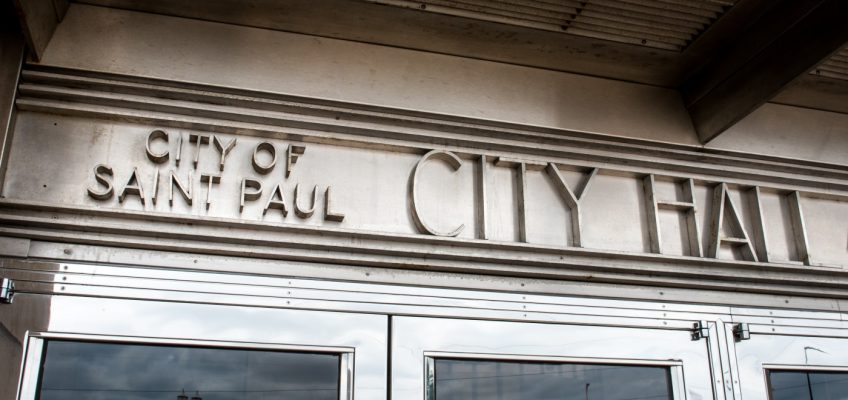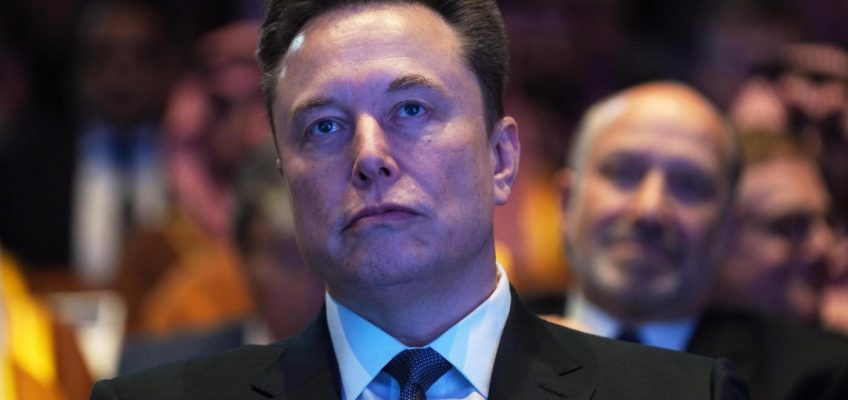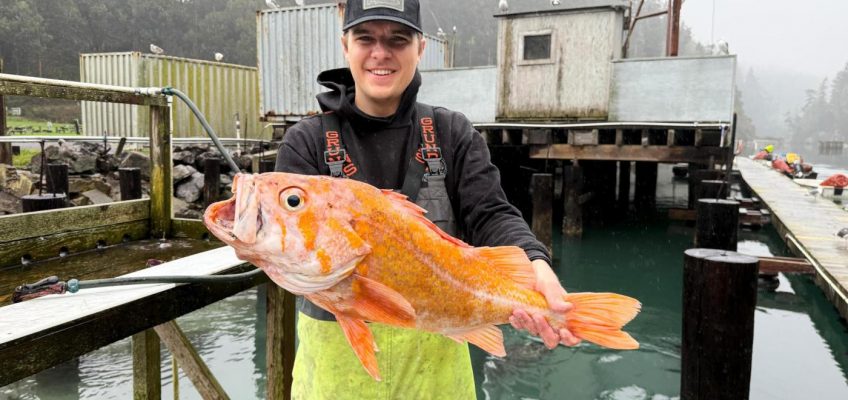Two decades after Jeffrey Epstein was first reported to police, the Justice Department has started to release its investigative files on the late millionaire, who was accused of repeatedly sexually abusing underage girls.
Related Articles
Trump announces lower drug price deals with 9 pharmaceutical companies
Hegseth announces operation to ‘eliminate’ Islamic State fighters in Syria after deaths of Americans
What’s inside the released files on Jeffrey Epstein
Rep. Elise Stefanik ends her campaign for New York governor and won’t seek reelection to House
Transportation Secretary Sean Duffy’s daughter calls TSA ‘unconstitutional’ after pat-down
Enacted last month, the Epstein Files Transparency Act requires disclosure of government records on Epstein and his longtime confidant Ghislaine Maxwell by Friday — though it’s possible more records will be released on a rolling basis.
Among questions surrounding the release: how much light the documents shed on Epstein’s crimes, his interactions with influential friends in business, politics and academia and whether anything in the documents will support — or debunk — one accuser’s claims that other powerful men participated in or knew about Epstein’s misconduct.
Here is a timeline of the Epstein investigations and the efforts to open up the government’s files:
The investigation begins
March 2005: Police begin investigating Epstein after the family of a 14-year-old girl reports she was molested at his mansion in Palm Beach, Florida. Multiple underage girls, many of them high school students, would later tell police Epstein hired them to give sexual massages.
May 2006: Palm Beach police officials sign paperwork to charge Epstein with multiple counts of unlawful sex with a minor, but the county’s top prosecutor, State Attorney Barry Krischer, takes the unusual step of sending the case to a grand jury.
July 2006: Epstein is arrested after a grand jury indicts him on a count of soliciting prostitution. The relatively minor charge upsets Palm Beach police leaders, who publicly accuse Krischer of giving Epstein special treatment. The FBI begins an investigation.
2007: Federal prosecutors prepare an indictment, but for a year Epstein’s lawyers engage in talks with the U.S. attorney in Miami, Alexander Acosta, about a deal that would avoid a federal prosecution. Epstein’s lawyers decry his accusers as unreliable.
Secret deal leads to a light jail term
June 2008: Epstein pleads guilty to state charges: one count of soliciting prostitution and one count of soliciting prostitution from someone under the age of 18. He is sentenced to 18 months in jail. Under a secret arrangement, the U.S. attorney’s office agrees not to prosecute Epstein for federal crimes. Epstein serves most of his sentence in a work release program that allows him to leave jail during the day.
May 2009: One of Epstein’s accusers, Virginia Roberts Giuffre, files a lawsuit claiming Epstein and Maxwell arranged for her to have sexual encounters with “royalty, politicians, academicians, businessmen” and others. The lawsuit doesn’t name the men.
July 2009: Epstein is released from jail. For the next decade, Epstein’s accusers wage a legal fight to get his federal non-prosecution agreement voided.
News media and lawsuits keep public interest high
March 2, 2011: The Daily Mail publishes an interview with Giuffre in which she describes traveling with Epstein to London at age 17 and spending a night dancing with Andrew Mountbatten-Windsor, then known as Prince Andrew. The story and a photo of the prince with his arm around Giuffre creates a crisis for the royal family. FBI agents subsequently interview Giuffre.
Dec. 30, 2014: Giuffre’s lawyers file court papers claiming she had sexual encounters with Mountbatten-Windsor and other men, including “foreign presidents, a well-known Prime Minister, and other world leaders.” All those men deny the allegations.
November 2018: The Miami Herald revisits the handling of Epstein’s case in a series of stories focusing partly on the role of Acosta — who by this point is President Donald Trump’s labor secretary. The coverage intensifies public interest in Epstein.
New York prosecutors revive case
July 6, 2019: Epstein is arrested on sex trafficking charges after federal prosecutors in New York conclude they aren’t bound by the terms of the earlier non-prosecution deal. Days later, Acosta resigns as labor secretary.
Aug. 10, 2019: Epstein kills himself in his jail cell in New York.
July 2, 2020: Federal prosecutors in New York charge Maxwell with sex crimes, saying she helped recruit and abuse Epstein’s victims.
Dec. 30, 2021: After a monthlong trial, a jury convicts Maxwell of sex trafficking and other crimes.
June 28, 2022: Maxwell is sentenced to 20 years in prison.
January, 2024: Public interest in the Epstein case surges again after a judge makes more court records public in a related lawsuit. Conspiracy theories flourish, pushed by people who believe Epstein ran an international sex traffic network that served rich and powerful men.
A new president and a fresh political crisis
Jan. 20, 2025: Trump, who was friends and neighbors with Epstein for years, becomes president again. During his 2024 campaign, he had suggested that he’d seek to open more government files on Epstein.
February 2025: Attorney General Pam Bondi suggests in a Fox News Channel interview that an Epstein “client list” is sitting on her desk. The Justice Department distributes binders marked “declassified” to far-right influencers, but much of the information had long been public.
April 25, 2025: Giuffre dies by suicide.
July 7, 2025: The Justice Department says Epstein didn’t maintain a “client list” and it won’t make any more files related to his sex trafficking investigation public.
July 15, 2025: Reps. Ro Khanna, D-Calif., and Thomas Massie, R-Ky., introduce the Epstein Files Transparency Act.
July 17, 2025: The Wall Street Journal describes a sexually suggestive letter that the newspaper says bore Trump’s name and was included in a 2003 album for Epstein’s 50th birthday. Trump denies writing the letter and sues the newspaper.
July 24-25, 2025: In an effort to put a political crisis to rest, Deputy Attorney General Todd Blanche interviews Maxwell. She denies wrongdoing and says she never saw Trump involved in any sexually inappropriate activity. Afterward, she is moved from a low-security prison in Florida to a minimum-security prison camp in Texas.
A prince loses his royal title
This redacted photo released by the U.S. Department of Justice shows Jeffrey Epstein’s sexual offender registration form, documented on Aug. 12, 2019, during a search of Epstein’s home on Little St. James island in the U.S. Virgin Islands. (U.S. Department of Justice via AP)
Oct. 21, 2025: Giuffre’s posthumous memoir is published. In it, she revisits her claims that Epstein and Maxwell sexually trafficked her to powerful men, including Mountbatten-Windsor.
Oct. 30, 2025: King Charles III strips Mountbatten-Windsor of his remaining titles, meaning he can no longer be referred to as “prince,” and evicts him from his royal residence.
Nov. 12, 2025: A House committee releases a trove of email correspondence between Epstein and others, including Mountbatten-Windsor, Trump ally Steve Bannon, ex-Treasury Secretary Larry Summers and LinkedIn founder Reid Hoffman. In one 2019 email to a journalist, Epstein wrote that Trump “knew about the girls” but didn’t explain what he meant by that.
Nov. 14, 2025: At Trump’s urging, Bondi announces that the U.S. attorney in Manhattan will investigate Epstein’s ties to some of the Republican president’s political foes, including former President Bill Clinton, a Democrat; Summers; and Hoffman, a prominent Democratic donor. None of those men has been accused of misconduct by Epstein’s victims.
Nov. 18, 2025: Congress passes the Epstein Files Transparency Act. Trump signs it into law the next day.
Dec. 19, 2025: The Justice Department begins releasing records.
Follow the AP’s coverage of Jeffrey Epstein at https://apnews.com/hub/jeffrey-epstein.




